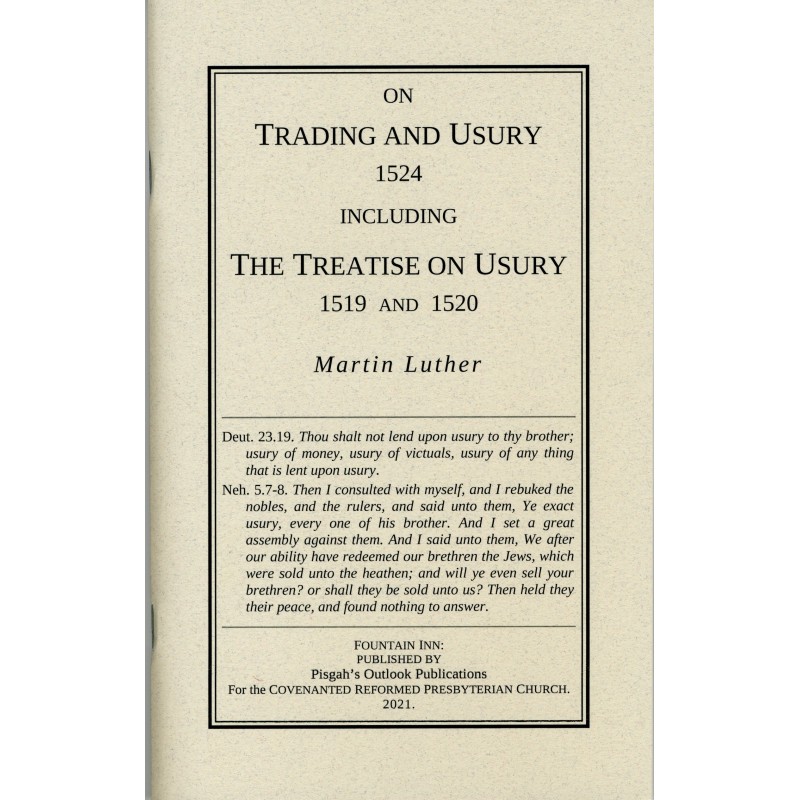




On Trading and Usury, 1524
Including, The Treatise on Usury, 1519 and 1520.
By Martin Luther
On Trading and Usury, 1524
Including, The Treatise on Usury, 1519 and 1520.
By Martin Luther
Published by Pisgah's Outlook Publications
Saddle-Stitch Paper Booklet, 70pp.
As the United States transitions from Socialism into Communism, even after both of these systems have failed in surrounding nations, many of us are compelled to ask, "Where did we go wrong?" Martin Luther, the German Reformer, has some answers on the topic of economics that might surprise you.
While a defense of Capitalism and Free-Market policies might seem like the obvious solution to society's misguided direction, Dr. Luther brings us the Christian answers drawn from the Holy Scriptures. If you tried to categorize him as either Capitalist or Communist, you would be utterly confounded. That's because he didn't want to be guided by party-spirit or political-philosophy when answering the question, How does God want me to deal with my neighbor? As a disciple of Jesus, he wanted to be guided by his Bible.
In our day we have a million schemes and distinctions to make cheating our neighbor sound like a virtuous deed. A sophisticated language exists for the sake of economics, investments, and insurance. Remember the terms "Toxic Asset" and "Credit Default Swap" that used to be common parlance one decade ago? The terms were new, but the use of curious terminology was not new at all.
Could you imagine an idea of loans that didn't involve interest rates? Well, that's the idea of loans that connects with lending as a deed of mercy: the kind of lending Jesus taught his disciples. If you have a different idea of lending (perhaps called investments,) you will find special help from the Doctor in this little booklet.
On the whole, this publication is remarkable for promoting a kind of simplicity and goodness that is not entangled in questions about justice. It encourages a kind of Christian conduct that is based on faith: a faith that trusts God for daily needs, and a gradual prosperity that is ensured by God's blessing on the man who does good to others, even while they are doing wrong to him.